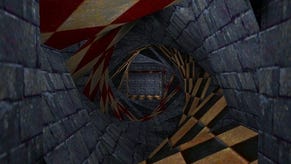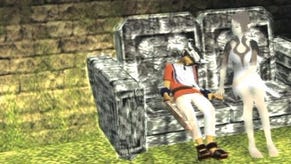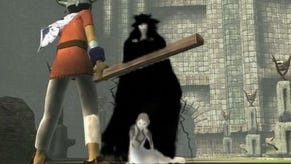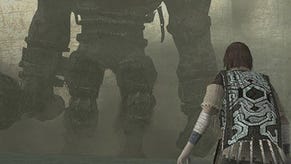ICO
Out of the Shadow.
Kristan's thoughts on a classic
Conspiracy is a word people regularly used to discuss ICO. Furrowed brows knit in troubled unison at how such an obviously beautiful game could have failed so spectacularly. Surely something this good would sell regardless? No one really knows precisely why it flopped; some blame the lack of concerted press hype, some blame retail indifference, others put the blame firmly at Sony's door for not realising what it had or how to position it. Does it even matter anyway? Great things fail to sell all the time; movies, books, music, you name it. Four years after ICO's release, you'd think we'd have gotten over it by now.
But four years is a long time in gaming, and this is a unique scenario. ICO is too important to be brushed under the carpet and fondly recalled whenever we dig out those cult classic lists. We talk of cult classics, but this is much more than an interesting curio. Most games worth a damn get a budget release within a year or so at the very least. Many games get released straight to budget and remain available for years, but not this one.
ICO is a game that, up until now, has been incredibly elusive; official sales figures place the total at around the 25,000 mark in the UK alone. That's bad enough, but the game's scarcity gives the distinct impression that few copies of the game were produced in the first place, which, if that's true, is a disgraceful, eye-rolling state of affairs. As a result of Sony's initial baffling indifference to one of its best ever games, it became one of the few genuine collector's items, and regularly fetched over £50 on eBay. But does it really live up to the unreasonable hype generated by four years of frenzied word of mouth? Definitely. No amount of gushing accounts could distil what this game means to people.
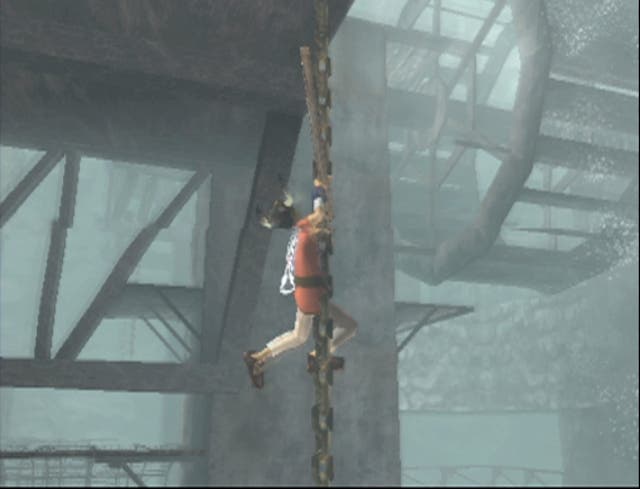
But four years is a long time, and the years are never kind to videogames. A lot of things have happened since that may conspire against its success all over again. Sure, Sony Europe wants to have another crack at making the game a success; that's great news, but things have moved on, haven't they? Technology is a notoriously harsh mistress when it comes to reassessing old favourites, as Tom has already pointed out. The invention of SUPER LARGE televisions, for a start, often ruin the vision you have in your head about how games look. You never think for a second that when you shell out a big screen display of justice that it could ever make your games look worse, but in most cases PS2 games on a super sharp big screen telly are a match made in hell. But not ICO. Oh, ho, no.
Somehow, ICO fully stands the test of time in technology terms - and given that we're already onto the next generation, that's a huge surprise. It's by no means the sort of game that'll have you cringing at blocky textures, unwieldy animations, pop-up or slowdown. If anything, ICO looks every bit as good as any current game. The architecture is still a sight to behold; the castle and its grounds are places you'll want to revisit. Somehow, the various buildings and the endless stunning views that stretch out to sea look even more panoramic and awe-inspiring on a decent display than they did back in late 2001 on my (still functional) 18 year-old 4:3 Sony TV, and there are few games from that era, if any, that you could say that about.
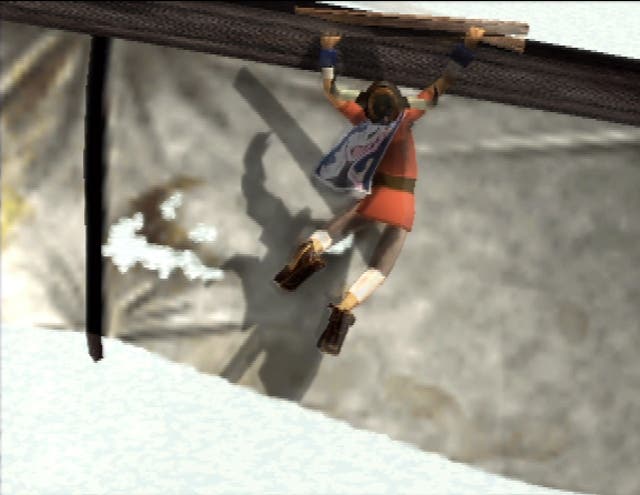
It's not purely about smart use of the technology, either. The artistic vision involved in creating such a breathtaking game world transcends conventional videogame thinking. Few games could ever tempt you into standing on a precarious precipice just so you can get a better view, but that's the way ICO's built from the ground up. Just as Shadow of the Colossus makes you part adventurer, part gaming tourist, it's seemingly as much of a priority to make what you see as integral part of the experience as the puzzling and combat. It's all in the detail; the ethereal background noise generates an expectant ambience that shallows your breathing, and the way the camera angle shifts subtly and elegantly pans out to try and second guess your need to see the bigger picture is an effect we'll never tire of. Playing it through a second time only reinforces your admiration. It's the only game ever made that makes you want to go out and make a scale model of it; in fact someone probably already has. It�s no co-incidence that the original limited edition version came with four postcards.
But enough about the technical and artistic merit, what about the game? As has long been noted, it's actually an incredibly simple affair that is far greater than the sum of its parts. Describing it could make it sound dull, in as much that dragging a girl hither and thither while whacking inky shadowy monsters with a stick probably doesn�t sound especially revolutionary. At worst you could say the combat is basic, unnecessary and repetitive; at best it's eerie, other worldly, menacing and heart-breaking. Losing Yorda to a cloud of black is one of the most distressing consequences of neglect you'll ever experience in a game. You won't want to let it happen more than once, and as such you become ever more intent on avoiding the dereliction of duty.
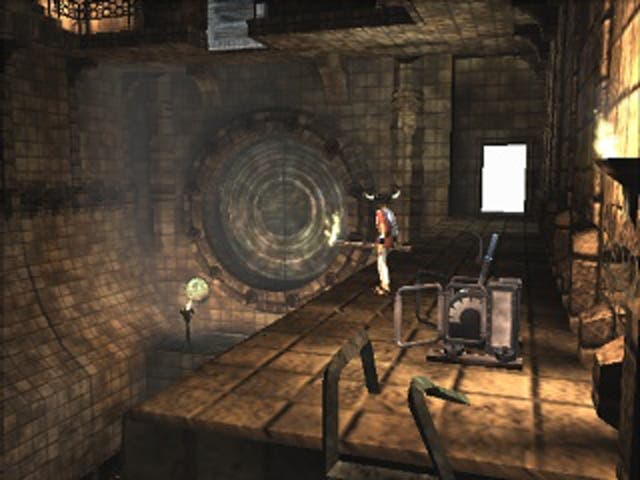
The puzzle-adventuring is, again, simple, tried and trusted. Block shifting, lever pulling, chain swinging, platform negotiating... hello, is Lara Croft in the building? How, exactly, could experienced critics get so repeatedly foamed-up about this brand of adventure-by-numbers simplicity? Isn�t this just a bit like a logical 3D extension of Another World or the original Prince of Persia games? Certainly, the influences are plain to see, but its freshness is all in the design, both in technical terms and the structure and pacing of the game's challenges. So exquisite is the sense of isolation and lack of hand-holding that working out how to progress never seems that simple when you're actually wandering around. Once you have the solution, it's very much a head-smacking case of 'of course you have to do that', but literally the only help you'll get is Yorda yelling incoherently and occasionally pointing at something you probably already realised was significant anyway.
Being of unyieldingly linear stock, yes, there are moments of abject frustration when the solution eludes you, but such moments of minor annoyance soon give way to impish satisfaction when you suss it and reach the next stunning section. By the time you finish the game, you'll want to hug people. Then you'll talk about it with a semi-religious zeal to your mates, imploring they play it too, or you'll meet people who have and share the emotion of the experience. It seems improbable, but that's been the story of the last four years for those of us who played it first time around. Playing it again seems even more special, because it's one of the very few games that hasn't dated at all. If anything, ICO's status merely keeps on growing, and its place in the pantheon of greats is assured. Revisiting it puts the merits of some of the best games over the years into full perspective, and not necessarily in a good way. It's astonishing to realise just how ahead of its time it was, and still is.
If you want a game to make you feel again, then buying ICO is the cheapest medicine on the shelf. We don't throw around superlatives like this lightly, but it really is one of the best games ever made; missing out on it a second time is not an option.


